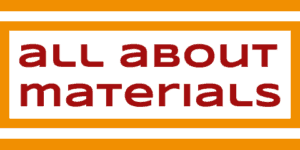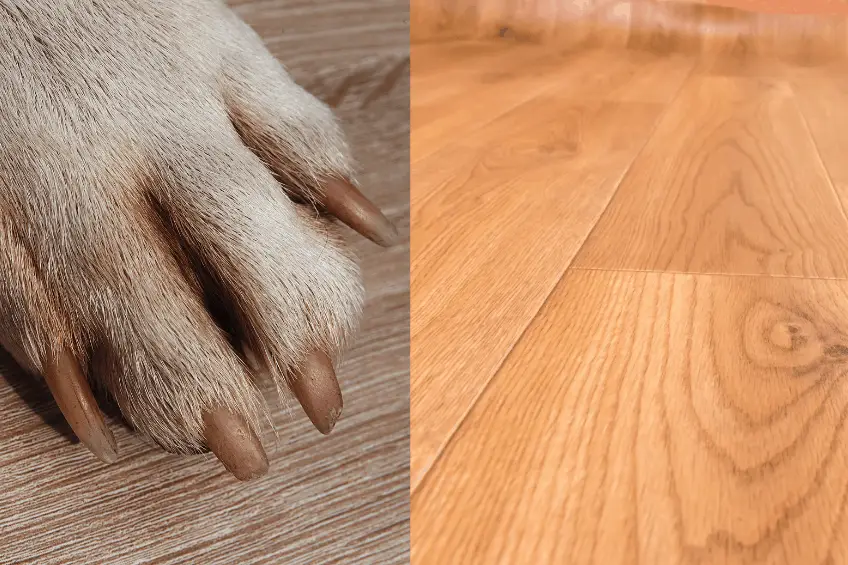This post contains affiliate links.
Our floors can sometimes be subjected to heavy beating. From kids playing with their toys being dropped or dragged around, hyperactive dogs with sharp nails running all over the place, to furniture being moved in a party or a social event. Scratches and dents could usually develop with these types of activities and this is why it’s important to get a flooring material that is durable and has high scratch resistance.
Luxury vinyl plank (LVP) floors are one of the popular choices for flooring in homes today. With the variety of activities, a flooring can go through every day, LVP floors should be durable enough to hold up to the beating. This begs the question, are vinyl plank floors durable and scratch-resistant?
Vinyl plank floors have a wear layer, protecting the floor from wear and tear, making the surface durable and scratch-resistant. The wear layer ranges from a thickness of 6-mil to 20-mil and up. Some vinyl planks also have a special coating added to the wear layer for better scratch resistance.
Although most luxury vinyl planks are durable and scratch-resistant, each brand and product has different wear layers and topcoats applied to their vinyl planks. No two products are the same with some being more durable and scratch-resistant than others. In most cases, luxury vinyl planks that are in a higher price range usually have thicker wear layers and better topcoat composition which also equates to better durability and resistance to scratches and dents.
Does Vinyl Plank Flooring Scratch Easily?
Vinyl plank floors do not scratch, chip off, or dent easily. Dog nails, children’s play, or the frequent dragging of furniture will not easily scratch a vinyl floor. However, the protection against scratches varies on the thickness and composition of the vinyl plank’s wear layer and the object that it gets in contact with.
Vinyl plank floors are composed of several layers. These usually include a scratch-resistant wear layer, an image or design layer, PVC or rigid core, and an underpad. The wear layer protects the vinyl plank floors from everyday wear and tear. It basically protects vinyl planks so that they wouldn’t scratch so easily.
Vinyl planks are not scratchproof though and they can still get scratched, chipped off, or dented if the object that gets in contact with it is heavy or sharp enough to get through the wear layer.
Most brands of vinyl planks will have options of 6, 8, 12, and 20 mils of wear layer thicknesses. Some brands will also have wear layers thicker than 20-mil. The thicker the wear layer, the more resistant and durable the vinyl planks are to scratches and dents. Also, the thicker the wear layer, the higher the cost of the vinyl planks also becomes.
6 and 8 mils are considered budget vinyl planks and are generally cheaper but they also have the least resistance to scratches and can chip off or dent easily. Usually, 12-mil is the minimum recommended wear layer thickness for residential spaces. If you have kids, dogs, or pets with sharp nails, a 20-mil wear layer thickness would be better.
Vinyl planks with wear layers that are thicker than 20-mil are usually used for high-traffic areas and commercial spaces.
The top brands for luxury vinyl planks will often have a top coating or finish overlaid or infused with the wear layer to give it more durability against scratches and dents. The top coating is equally as important as the thickness of the wear layer. So aside from the thickness of the wear layer, you should also consider the type of coating the vinyl plank floor is applied with.
A vinyl plank with a 12-mil thick wear layer with a ceramic bead coating applied, for example, is more scratch-resistant than a vinyl plank with a 20-mil thick wear layer without any coating.
Some of the types of coating that vinyl plank products have are aluminum oxide, ceramic bead, vinyl, and urethane. Each has its own advantages and disadvantages but they all give an additional hardness and protection to the wear layer, making it more durable.
The combination of both the wear layer thickness and the top coating finish type determines how durable against scratches the vinyl planks will be.
Having a tough wear layer that gives a degree of scratch resistance is one of the advantages of using luxury vinyl plank flooring.
Below is a good review video of using vinyl plank flooring for 1 year in their residential house with children and dogs.
Is Vinyl Flooring Good for Pets?
Vinyl plank flooring is a good choice for pets, such as dogs or cats. This is not only because of the degree of durability and scratch resistance it offers but also because vinyl planks are also waterproof. This means that vinyl flooring is not only well protected against scratches from pet nails but against moisture damage and staining from pet urine as well.
Vinyl flooring is one of the best floorings that is both waterproof and scratch-resistant at the same time.
For houses with pets, it is usually better to go with wear layers that are 20-mil thick, and with a good type of top coating applied.
What Can Damage Vinyl Plank Flooring?
Vinyl plank flooring is highly durable and scratch-resistant but to a certain degree. You can still damage vinyl plank flooring if you abuse it and don’t treat it right.
Highly abrasive scrubbers, sponges, steel wool, and other rough cleaning materials could damage the vinyl plank flooring. Using them frequently to clean the floor will wear out the coating and wear layer faster and eventually create nasty scratches and indentations to the vinyl planks.
Vinyl planks can be also be damaged by strong chemicals and cleaning products. Ammonia, for example, is strong enough to break down the special coating and wear layer of vinyl floors, which can expose the vinyl planks for possible damages.
Dragging heavy objects, such as furniture or equipment, on top of vinyl floors could create deep scratches to the surface. Thicker and rigid types of luxury vinyl planks may be able to hold up to the weight and friction of the objects being dragged, but thinner and softer vinyl planks may tear, chip-off, or develop deep scratches to their surfaces.
Even though vinyl plank floors are rated to be highly durable and scratch-resistant, you should still try to care for them to prolong their lifespan.
How Do You Protect Vinyl Flooring From Scratches?
Just like hardwood floors, we protect vinyl flooring the same way. Below are just a few things you could do to protect your vinyl floors from scratches:
- Regularly cleaning, sweeping, mopping of the vinyl floors. Remove any dirt, sand, debris, or particles that could be stepped on and dragged to the surface.
- Placing a door or entrance mat outside your front door to capture any particles or debris that you may bring in inside yoru home.
- Use floor protectors under the furniture legs and appliances to protect the vinyl floor when the furniture is being dragged or moved.
What Is the Most Scratch Resistant Vinyl Plank Flooring?
Among the types of vinyl plank flooring, luxury vinyl plank floors have the most scratch resistance. This is because of the combination of the top coating, and wear layer that they are usually applied with.
Some of the top brands that offer high-quality luxury vinyl planks and tiles, and have high scratch resistance are the following:
Each brand has its own unique coating and protection layer against scratch resistance and each may also have several product lines with different levels of scratch resistance as well.
Scratch resistance is not the only factor in choosing the best luxury vinyl floor to install. There are also the aesthetics, the feel, cost, ease of installation, warranties, customer service, and more that also need to be considered as well. So when choosing a luxury vinyl plank flooring to buy, base it on the design concept and the actual needs of your space, considering all possible factors.
Can Vinyl Plank Flooring Be Repaired?
One of the advantages of having vinyl plank flooring is that it is easy to repair, or replace if it gets scratched, dented, chipped off, or damaged in any way. Whether you have a glue-down or floating type of vinyl plank, there are solutions to patch them up, remove scratches, or easily replace whole pieces of planks if needed. The repair works are also DIY friendly, and you can do the repairs all on your own.
All About Materials is a participant in the Amazon Services LLC Associates Program, an affiliate advertising program designed to provide a means for sites to earn advertising fees by advertising and linking to Amazon.com. We also participate in other affiliate programs which compensate us for referring traffic.

